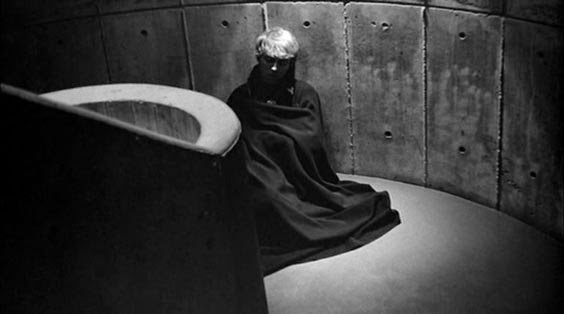Stereo
Viewers of the films of David Cronenberg often note how clinical they seem. Chilly, austere. This approach perhaps is best for his usual subject matter. Often, analyses of the human body, its physiology and inevitable decay. Sexual elements inform hypotheses, independent variables, and outcomes. Neurology drives each function and is examined much the way a clinician would, with streams of jargon and lack of emotion. Cronenberg uses hard medical subject matter and its trappings to leap into science fiction, to explorations of the extrasensory.
The director's first full length feature, 1969's STEREO studies a group of telepathic subjects who volunteer for an experiment by a Dr. Luther Stringfellow, the unseen investigator who heads the Canadian Academy of Erotic Inquiry. This study will consider states of consciousness and alternate personalities among the subjects as they engage in sexual behavior. Exploration of deviancy and the smashing of social norms (such as heterosexuality and the idea of a "family unit") are expected as aphrodesiacs are ingested and regions of the brain that regulate speech are obliterated. Stringfellow's followers fill the soundtrack periodically with dense explanations of the new perceptions developed within and between the young participants. The descriptions often sound like a post doc student who swallowed too much peyote.
STEREO was filmed on a barren campus at the University of Toronto. Cronenberg already demonstrates, even in this modest debut feature (a little over an hour in length), his mastery of the use of locations as personifications of his themes. The unspeakable gloom and solitude of both interiors and exteriors mirror that of his characters, a few of whom commit suicide (offscreen) when, as part of the research model, they are separated from each other. The relentlessly serious narrative is mainly a collection of static shots with only that occasional narrator to explain, in the most oblique and cryptic terms, the results of the experiment. Most of the time, the film is silent. Uncomfortably so. STEREO is quite a discordant experience. It intriguingly alternates between being fascinating and dull, and often it manages to be both at the same time.
Cronenberg followers will absolutely see in STEREO the genesis of themes expanded to sometimes gruesome lengths in later films such as SHIVERS, RABID, SCANNERS, VIDEODROME, CRASH, et al. As a primer, this film may not spur the uninitiated to seek out these more accomplished films. For the dedicated, it will provide a satisfying piece to the enigmatic puzzle of the director's work.
NOTE: STEREO is included as an extra on Disc 2 of Criterion's recent issue of SCANNERS. The 1969 film (and its 1970 follow up, CRIMES OF THE FUTURE) is also featured on the DVD of Cronenberg's 1979 racing drama FAST COMPANY, which I've yet to investigate.



Comments